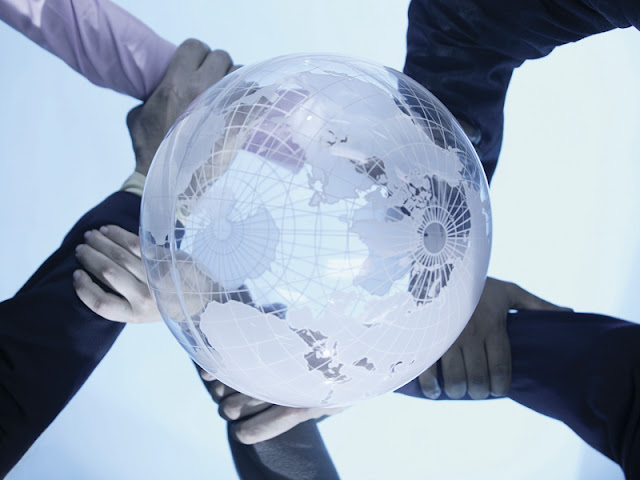Mike Pompeo, who served as Trump's Secretary of State, had to defend his recent remarks about Vladimir Putin being "savvy" and "very talented." His response demonstrated an appalling ignorance.
From CPAC—>
— Vaughn Hillyard (@VaughnHillyard) February 25, 2022
NBC: Russian state media has played your own words…[calling] Putin shrewd, capable & you said you have enormous respect. Do you regret your words?
Pompeo: I’ve been fighting communism since I was a teenager. I’m going to keep fighting communism. pic.twitter.com/sPJGoKCd72
Rather than answer the question, Pompeo kept talking about "fighting communism," something that hasn't existed in Russia since the early 1990s.
It is worth noting that, after the break-up of the Soviet Union, Russia began to sell off all of its national assets - something that Vladimir Putin helped manage for then-President Boris Yeltsin. That gave Putin the knowledge and strategy he used to consolidate power by controlling the oligarchs who were empowered by the privatization.
All of that is important as we watch the world unite by implementing catastrophic sanctions against Russia for invading Ukraine. The transition from communism to oligarchy moved Russia away from being economically isolated, putting them in the midst of a globalized economy.
The process of globalization impacts the processes of change on the local and regional scale...globalization implies a stretching of social, political, and economic activities across frontiers such that events, decisions, and activities in one region of the world can impact individuals and societies elsewhere, as well as an increased interconnectedness which transcends individual states...In the case of the Russian Federation and other post-Soviet states...we see societies that were previously closed off from global influence are now open to all these forces.
Max Fisher was one of the only reporters to point this out back in 2014 when Putin annexed Crimea.
The lesson that Putin is learning is that Russia depends on the global economy, whether it likes it or not, and the global economy doesn't like it when you go invading other countries and tempting the richest nations in the world to maybe consider sanctioning you. This is actually a significant change for Russia, which at the height of its Soviet power was not integrated into the global economy and so didn't have to worry about things like investor sentiment. But now it is and it does.
What's cool about this is that it theoretically could apply to lots of other possible acts of international aggression around the world. This is something that economists and political scientists have been predicting since World War One: that integrating all the national economies into the global economy wouldn't just make all of us richer; it would make war more economically painful for the people starting it and thus less likely to happen.
Of course, there are reasons to be concerned about the impact of globalization, but perhaps that puts a different spin on things than we've been used to hearing from the so-called "populists" who have been raging against it.
At this point, we don't know the outcome of the war Russia has waged against Ukraine. But one of the reasons I have been transfixed as it develops is that it very well could represent the ultimate battle between the old world order and the new one. As I've suggested previously, Putin is attempting to turn the clock back to the days in which the most powerful countries were determined by their ability to dominate the rest of the world through military force.
After years of trying to sow divisions among the allies of democracy, Putin is running head-on into a united effort being waged against him by the new world order. It is important to remember that the strategies being used against Putin right now (ie, debilitating sanctions) wouldn't have been effective against the former Soviet Union. Instead, the Cold War (where outright war between the two major powers was avoided due to fear of nuclear annihilation) was fought via proxy battles in other countries.
Putin is obviously attempting to re-establish the Russian empire as the 21st Century's Great Power by invading Ukraine. But he's not only having to face fierce resistance from the people of that country, most of the globe is uniting to ensure that Russia will pay an extreme economic price. You can almost feel the tectonic plates shifting beneath his feet.
Switzerland and Sweden were neutral even during World War II.
— Tristan Snell (@TristanSnell) February 27, 2022
Today Switzerland is freezing Russian assets, and Sweden is sending 5000 anti-tank missiles to Ukraine.
Putin has united and awakened the free world — perhaps more than ever before.
🇩🇪 It is hard to overestimate how much Putin’s attack on Ukraine changed Germany.
— Michael Knigge (@kniggem) February 26, 2022
Less than a week ago Nord Stream 2 was still alive, delivering lethal weapons to Ukraine taboo & cutting Russia out of Swift out of the question.
Putin’s invasion changed Germany.
Zeitenwende.
Vladimir Putin has killed Swedish neutrality and German pacifism in a single weekend
— Samuel Ramani (@SamRamani2) February 27, 2022
If Putin is defeated, it will, as Fisher noted, "make war more economically painful for the people starting it and thus less likely to happen." Those are the stakes, and they couldn't be any higher.
Oh, and by the way...no one understands the stakes better than President Joe Biden, who has managed this whole thing masterfully. But that's a topic for another day.

















